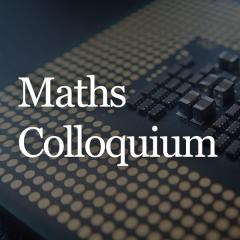Presenter: Peter Tingley, Loyola
Lusztig's canonical basis is a fairly miraculous object that, among other things, gives a chosen basis for every finite dimensional irreducible representation of a simple Lie algebra over the complex numbers. It is often studied using geometric representation theory and categorification, which is needed to understand some of its surprising properties (specifically, various positivity statements). But, in finite type, one can construct it and see some of its amazing properties using surprisingly simple and elementary methods. Here I will explain what canonical bases are and why they are so great. I will then outline how to construct them in finite type, following Lusztig's approach, but without any geometry. I will also mention some recent work with Ben Salisbury and Adam Schultze where we use tthese ideas to understand relationships between Lusztig's PBW bases and things like Young-tableaux combinatorics, mainly by showing some examples.
About Maths Colloquium
The Mathematics Colloquium is directed at students and academics working in the fields of pure and applied mathematics, and statistics.
We aim to present expository lectures that appeal to our wide audience.
Information for speakers
Information for speakers
Maths colloquia are usually held on Mondays, from 2pm to 3pm, in various locations at St Lucia.
Presentations are 50 minutes, plus five minutes for questions and discussion.
Available facilities include:
- computer
- data projector
- chalkboard or whiteboard
To avoid technical difficulties on the day, please contact us in advance of your presentation to discuss your requirements.

